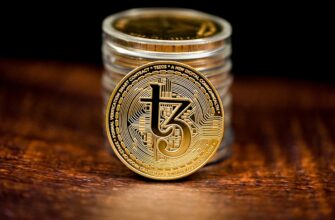- Why Seek Anonymous Fund Security?
- Legal Considerations First
- Step-by-Step Tutorial: Securing Funds Anonymously
- Essential Privacy Tools & Practices
- Risks and Mitigation Strategies
- Frequently Asked Questions (FAQ)
- Is anonymous fund security legal?
- Can cryptocurrencies guarantee 100% anonymity?
- How do I convert anonymous crypto to cash safely?
- Are prepaid cards truly anonymous?
- What’s the biggest risk in anonymous funding?
- Do VPNs ensure transaction anonymity?
Why Seek Anonymous Fund Security?
In today’s digital landscape, securing funds anonymously addresses critical privacy concerns. Individuals may seek financial anonymity to protect against identity theft, avoid targeted advertising, shield sensitive transactions (like donations or business dealings), or maintain personal safety. While complete anonymity is challenging, this tutorial outlines legal methods to enhance privacy when handling funds, emphasizing compliance with local regulations.
Legal Considerations First
Anonymity ≠ Illegality: This guide focuses on privacy-enhancing techniques for legitimate purposes. Always comply with anti-money laundering (AML) laws and tax regulations in your jurisdiction. Consult legal counsel if handling large sums or complex transactions.
Step-by-Step Tutorial: Securing Funds Anonymously
- Choose Your Anonymity Tool
- Cryptocurrencies: Opt for privacy coins like Monero (XMR) or Zcash (ZEC) which obscure transaction details. Avoid Bitcoin for true anonymity.
- Prepaid Cards: Purchase with cash and use for online/offline payments without linking to your identity.
- Digital Gift Cards: Acquire via cash or anonymous cryptocurrencies for platform-specific spending.
- Establish Anonymous Accounts
- Use privacy-focused wallets (e.g., Cake Wallet for Monero) without KYC verification.
- Create email addresses via ProtonMail or Tutanota with encrypted sign-ups.
- Leverage decentralized exchanges (DEXs) like Bisq for crypto conversions.
- Receive Funds Securely
- Share only wallet addresses or prepaid card numbers—never personal details.
- For crypto, generate new addresses per transaction to avoid pattern tracking.
- Use VPNs/Tor to mask IP addresses during transactions.
- Convert & Access Funds
- Swap cryptocurrencies anonymously through atomic swaps or DEXs.
- Withdraw cash via Bitcoin ATMs (under regulatory limits) or peer-to-peer cash trades.
- Spend prepaid cards directly for goods/services.
Essential Privacy Tools & Practices
- Encryption: Use VeraCrypt for storing digital wallets or transaction records.
- Hardware Wallets: Secure crypto keys offline with devices like Ledger.
- Burner Devices: Dedicated smartphones/computers for anonymous activities.
- Cash Protocols: For physical exchanges, meet in secure public locations and verify funds discreetly.
Risks and Mitigation Strategies
- Scams: Verify counterparties via encrypted messaging (Signal) and use escrow services.
- Tracking: Avoid reusing addresses; mix coins via CoinJoin (for Bitcoin) or built-in obfuscation (Monero).
- Regulatory Flags: Stay below reporting thresholds (e.g., under $10K USD in crypto ATMs).
- Technical Errors: Double-check wallet addresses and test small amounts first.
Frequently Asked Questions (FAQ)
Is anonymous fund security legal?
Yes, if used for lawful purposes and compliant with local financial regulations. Tax evasion or illegal transactions are prohibited.
Can cryptocurrencies guarantee 100% anonymity?
No—even privacy coins have limitations. Chain analysis and metadata can sometimes de-anonymize users. Combine multiple tools for stronger privacy.
How do I convert anonymous crypto to cash safely?
Use decentralized exchanges, Bitcoin ATMs under regulatory limits, or trusted peer-to-peer cash exchanges with stringent verification protocols.
Are prepaid cards truly anonymous?
Only if purchased with cash and never registered online. Activation often requires minimal details—use pseudonyms where possible.
What’s the biggest risk in anonymous funding?
Irreversible transactions. Unlike banks, crypto and cash lack chargebacks. Verify recipients thoroughly before sending funds.
Do VPNs ensure transaction anonymity?
VPNs mask IP addresses but don’t anonymize the transaction itself. Use them alongside encrypted wallets and privacy coins for layered security.








